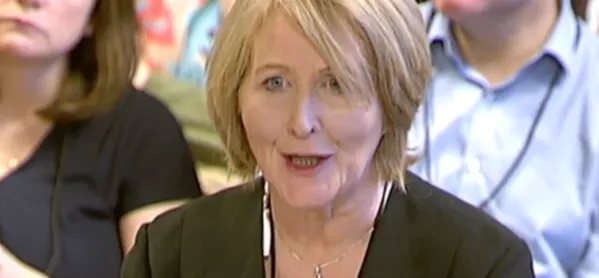Schools should take the lead on teaching children how to cope with the “avalanche” of pressure they face on social media, says England’s children’s commissioner Anne Longfield.
Giving evidence before MPs this morning, Ms Longfield cited schools that have banned smartphones or made pupils turn their phones off at 9pm as examples of how teachers can help students to manage social media use.
“When children go towards secondary school, and certainly that first year of secondary school, what they described to me was an avalanche of pressure,” she told the House of Commons Science and Technology Select Committee.
“I do think there’s so much to be gained by the school being engaged and the school taking the lead on this…I would like there to be a commitment that there is consistency across schools [so that] it isn’t reliant on the will in the school.”
‘Train teachers in technology’
Education and mental health campaigner Natasha Devon, who writes for Tes, agreed but said schools needed more training and funding to teach children how to navigate the online world.
“What I think would be really useful would be to train teachers in the technology because often the students’ understanding is greater than their teachers,” she told Tes. “But that requires money.”
Yih-Choung Teh, group director of strategy and research at Ofcom, said the regulator’s research had found that one in 10 12- to 15-year-olds had been bullied on social media, roughly the same proportion as had been bullied face-to-face.
Four out of five children also said they felt the pressure to appear popular, an issue “that seems a bit more acute among girls than boys,” he told the committee.
Their evidence backs up a slew of research highlighting how widespread the use of social media is among pupils, and its potentially damaging effects.
An Education Policy Institute report last year revealed that 95 per cent of 15-year-olds in the UK used social media before or after school, and half of 9- to 16-year-olds used smartphones on a daily basis.
Ms Longfield’s own report in January called for digital literacy lessons to be made compulsory in schools to prepare pupils when they were in Year 6 and 7.
The House of Commons Science and Technology Select Committee launched an inquiry in February to gather evidence on this issue from the public, experts and tech companies.




